
Editor's note: The Top of the Morning staff is pleased to continue our week-long celebration of the Day of Remembrance with author David G. Woolley through the Jewish Feast day on Monday, September 29th. Today's post features the Jewish tradition of the Feast of Trumpets and its relationship to Moroni's visits to Joseph Smith. Also featured are two excerpts from Day of Remembrance.
This is a trumpet. Jews know it as the shofar (pronounced Show-Far). Made from the hollowed-out horn of a ram, it's the same instrument ancient Israelites used to herald the return of Moses from the summit of Mount Sinai. Beginning on that day Moses instructed the Israelites to celebrate a Feast of Trumpets on the first day of the seventh month (Leviticus 23:24).
A trumpet like this was used to call the Israelites to the foot of Mount Sinai with their families and again to announce the covenant-making ceremony. The Israelites were forbidden to go beyond the foot of the mountain and Moses was directed to set priests along the perimeter to keep the throngs back. Moses was then instructed to bring Aaron up into the mountain where the details of the covenants were given which include the ten commandments popularly associated with this covenant-making event. It is likely that God used Sinai as a temple in the absence of an edifice dedicated as a House of God. Moses later built a tabernacle that served as a transportable temple where rites pertaining to the covenants given at Sinai were remembered.
In the following excerpt taken from chapter eleven of Day of Remembrance Nephi stands atop Mount Sinai and recounts what he knows of the day when Moses stood where he stood.
Nephi emerged from the shadows of a rocky gorge that led through the Border Mountains near the Red Sea and came out on the level plain of a valley at the base of the highest peak. Rugged cliffs graced the slopes along the north side and the late afternoon sun cast an orange glow across the rocky face. If this mountain could speak, what tales would it tell of the day when Moses sounded his trumpet and gathered the Israelites here?
The pilgrimages to Sinai ended centuries ago, the location lost to a remembrance of the elders at Jerusalem, and Nephi was left with nothing but folklore and his mother’s directions to guide him to this place. Sariah told him the story of the first day of the seventh month countless times in his youth. It was a day of blowing of trumpets, a day of memorial, a day for all Israel to make a Feast of Trumpets and remember the covenants given to Moses high on this mountaintop. Mother was certain this peak was the same summit where Moses celebrated the first Day of Remembrance, but how could she know with any certainty—how could any of them know for certain?
The sun pushed toward the western horizon, but the promise of nightfall didn’t keep Nephi from starting up the slopes. He’d gone a full day without water. His throat was dry and his tongue parched, but there was no thirst powerful enough to keep him from climbing the summit and ask God the question that plagued him since coming to this desert. If God could lead Moses to a land of promise, couldn’t He do the same for Nephi and his family?
A warm breeze hurried past these quiet haunts and in the whistling of the wind Nephi could hear the faint call of the trumpet sounding from centuries before. Did Moses stand somewhere along this ridge six hundred eighty six years ago and sound a run of short, high-pitched staccato notes on his shofar horn—the same spirited trumpeting that for centuries had been the call of the Jews to gather and offer prayers for Israel to remember their covenants with God?
Nephi reached the last switchback, but before climbing higher, he turned back to see down the mountain’s face. Was he standing where Moses stood so many centuries before? The prophet’s ancient writings told of four hundred priests standing shoulder-to-shoulder along the base of the mountain, each of them with a shofar and repeating the same run of notes played by Moses, their trumpets pleading with heaven to do for Israel what God had done for their fathers and restore the forgotten covenants that had power to keep them from being cast off forever and remember what they had forgotten during so many years in captivity—that it was God’s work and His glory to bring to pass their immortality and eternal life.
The trumpeters would have been dressed in white robes washed in spring water and scrubbed clean with fuller’s soap, their long, black locks falling out from beneath the white caps adorning the crown of their heads and down past their shoulders. They were no older than Nephi and they would have been better suited to the life of desert warriors than priests of God—hardened by months of wandering through the sands of the Sinai Peninsula and defending their camp from wild beasts and roving bands of Bedouin robbers. And when the threat of chariot riding Egyptians came against them in the deserts of Sinai and they were certain to be captured by the armies that enslaved them for centuries, the Lord parted the Fountain of the Red Sea and these fearless, faithful youths led Israel over on dry ground to make camp in these desert mountains of Midian while Pharaoh’s soldiers were drown in the depths of the sea.
The sound of the shofar horns would have summoned the Israelites into the valley, the quiet sound of their reverent march muted by the clap of thunderheads along the higher elevations, the massive cloud rumbling against the rock cliffs and lightning striking loose a shower of rock down the step face. What a scene it must have been for Moses to look out over this valley filled with thirty thousand Israelites in a sea of brown and white robes. It would have been an endless congregation filing through the rock passages, the Israelites entering the valley hand in hand with their families, young children riding on the shoulders of their fathers, infants in mothers’ arms and the tribe of Joseph carrying the mummified remains of their long-dead prophet-leader along with two royal relics given to Joseph’s sons Ephraim and Manasseh—an ancient sword passed down from father to eldest son and a record written on plates of brass.
Nephi backed from the cliff, climbed through a fissure in the rock and pulled himself up over a ledge to a plateau—up where the mountain reached into the cool of the sky and a run of grasses took refuge from the desert heat below. It was quiet here, with only a lone rock dove soaring across the summit and dividing between them the memory of what happened here so many years ago when the Israelites came to this mountain in search of a land of promise, but received instead an inheritance in eternity. This was Sinai—the place where Moses spoke face-to-face with God. It had to be Sinai, just as Sariah said it was—the sacred place where Israel made covenants with God.
Late in this same scene from Day of Remembrance God makes a covenant with Nephi that he will be a ruler over his people and that his descendants will prosper as long as they obey God’s commandments (1 Nephi 2: 19-24) . In addition, Nephi was promised that the descendants of his older brothers would be a scourge against his descendants if they did not abide by God’s commandments. This covenant is referenced often by Book of Mormon writers throughout Nephite history. Many of the wars between Nephite and Lamanite peoples were attributed to this covenant. Scholar Hugh Nibley indicates that this covenant made with Nephi is the major theme from beginning to the end of the Book of Mormon record.
The sounding of the trumpet, the main ritual on the Feast of Trumpets, symbolizes both redemption and revelation (Trepp, The Complete Book of Jewish Observances, page 144). The trumpet is associated with revelation since the first mention of its use was at Mount Sinai and the Feast of Trumpets is understood as a memorial of Sinai. Dr. Goodman notes that “The celebration of Passover was to be an annual reminder of the exodus. The ritual blast of the shofar would similarly recall by association the revelation on Mount Sinai (Goodman, The Rosh Hashanah Anthology, p. 42).
The sounding of the trumpet appears not only as a remembrance of the revelation given at Sinai, but also as an indication of future events. Just as the trumpet preceded God’s revelation of the law at Sinai (Exodus 19:16) some scholars believe the trumpet sounding during Rosh Hashanah (Ha-Zikaron or the Day of Remembrance) signals further revelation, including the establishment of the true law (Goodman, The Rosh Hashanah Anthology, 42). Old Testament, Book of Mormon, and Doctrine and Covenants scriptures speak of the trumpet preceding the establishment of truth that leads to redemption (Isaiah 58:1, Alma 29:1, D&C 33:2). “And at all times, and in all places, he shall open his mouth and declare my gospel as with the voice of a trump” (D&C 24:12). It is significant that the statue of the angel Moroni atop Mormon temples is portrayed as blowing a trumpet, proclaiming the gospel to the world, and particularly to the house of Israel. A review of LDS history and scripture indicate that most of the restored truths in the gospel of Jesus Christ began with the coming forth of the Book of Mormon.
In this second excerpt from Day of Remembrance Katerina Weiss, a Hassidic Jew, and her soon-to-be finace, Danny Kesler, a Sephardic Jew, give us an understanding of how Jews in the 19th century may have celebrated the Feast of Trumpets on the Day of Remembrance. This scene is set in the Old City of Jerusalem, September 1824.
Katerina Weiss stood with her father, Avram, at the top of the steps above the entrance to Kessler & Son’s clock making shop in the upper city of Old Jerusalem. The light was on, but there was no sign of Danny seated at his worktable near the window and in the gray light before dawn she retied the red ribbon into her long black hair and straightened her checkered dress. It was pressed and cleaned for synagogue this morning but with the cool, mist-filled late September breeze blowing inland from the Mediterranean it was impossible to keep the starched pleats and the white laces of her blouse from sagging.
“I don’t like this, daughter.” Avram hid in the shadows of the gates to the Kessler home. The newer stone in the walls of the two-story home were cut to the same dimensions as the ancient ones in the foundation, the new structure sitting squarely atop the remains of the old one. Poured glass windows graced the front of the building and inside the kitchen near the back of the home the Kessler’s cook worked beneath the light of a kerosene fueled flame preparing loaves of double twisted white ladder bread along with basted veal and fish, pies, cakes and candies to celebrate the day with a traditional meal after synagogue. The light of a many-flamed chandelier filtered out the largest front window and into the darkness of early morning, casting long shadows across Katerina and mixing with the light filtering up the stairs from the doors to the basement clock making shop. Katerina brushed her hair back over her shoulders and rubbed the rouge across her cheeks. She could fit their two-room apartment into the entry of this house. This was one of the grand estates in the city and they should be grateful the Kesslers took a liking to them or they’d have few friends in their new home.
“None of that primping, daughter. To synagogue we go, not a wedding dance.” Avram buttoned the top button on his black coat, fitted the cafton hat over his long gray ear locks and started down the first step when a loud mournful blast like the horn on a street vendor’s cart greeted them from inside the clock making shop. The trumpeting shook the small glass windows on either side of the entrance, echoing up the stairs and reverberating in the narrow stair well cut through the ancient stones of the foundation. Another run of short staccato blasts sounded inside the shop, rattling the wood door against the post, the sound forcing Avram back onto the cobblestones in the street. He reached for the railing at the top of the steps and steadied himself with the iron rod. “What in the name of Jericho?”
“Oh, Papa. It’s only Danny.”
“The clockmaker’s son?”
“He’s practicing. I told you they invited us to attend their synagogue this morning to hear Danny blow the shofar. It’s his first time.”
“He’s to blow the shofar to celebrate the feast, not bring down the walls of the synagogue, daughter.”
“Not a word about his horn playing, do you hear me?” Katerina nudged him in the back to start him down the stairs but he would not budge. “You’ll offend the Kesslers with your humor. They don’t know you like I do.”
“It’s Danny you don’t want to offend, yes?”
Katerina took him by the arm. “I’ll suffer none of your wit this morning.”
“We buy calendars from the Kesslers, and now we go to synagogue with them? I should have known this wasn’t going to be a good New Year.”
“We don’t turn down an invitation from the Kessler family.”
Avram wagged his finger at her. “The invitation was to you from Danny.”
“Fine.” Katerina let go of his arm. “I’ll go with Danny.”
“You’ll do no such thing.” Avram patted her on the cheek. “I’m not so old I don’t remember what it’s like to be you.”
“You were never a woman.”
“I won your mother’s hand, God bless her soul.”
“Papa, not here in the street.”
“I see what happens when you speak with Danny Kessler.” Avram removed his caftan and ran his fingers through his graying hair before refitting the hat. “You laugh for his jokes more than they deserve, you smile more in his presence than I should ever allow, and you forget there’s anyone else for miles around. You’re in a room full of Jews and think you’re alone with the son of the clock maker.” He took Katerina by the hand. “The Kesslers aren’t like us, daughter.”
“Papa, there’s hardly anyone in Jerusalem like us.”
“You miss my point.”
“Which is?”
“We should celebrate today with the other hassids in the city, not with these, these…
“They’re Jews, Papa. We’re all Jews. You, me, Danny, Mr. Kessler. What does it matter if we don’t share the same customs?”
“Living the law is not a custom.”
“The Kesslers live the law.”
“They don’t wear the covenants.” Avram grabbed the fringe that hedged out from under the tail of his black coat—the six hundred thirteen knots tying the corners of his undershirt together filled his hand with white linen.
“They don’t need to wear them Papa, not as long as they live them.”
“It isn’t proper. You should be with your own kind.” Avram dropped the knotted fringe to his side and patted her on the back of the hand. “There’s certain to be a clockmaker among the hassids in this city.”
“I’m not interested in a clock maker.”
“You’re interested in Danny Kessler, yes?”
“I don’t care if he were a street sweeper. Must I ignore every young man in the city?”
Another loud blast on the trumpet shot out the entrance of the shop followed by a run of nine staccato blasts—three of them were sharp and powerful, but the rest cracked when Danny held onto them. He was still having troubles and there was no time to practice.
“You see there.” Katerina brushed some lint from Avram’s sleeve. “He’s getting better. He has the teruah down nicely.”
“She knows the names of the trills and runs of the trumpet notes played on the feast day.” Avram raised both hands in the air. “You’ve been coming here to listen to the Kessler boy practice.”
“Only enough to know he’s improving.”
Avram straightened his cuffs. “There are Hassidic men in the city that haven’t a wife.”
“No Papa.” Katerina shook her head. “Not Jonah the butcher.”
“And what’s wrong with a butcher?”
“The poor man has no teeth.”
“He doesn’t have need of them. He grinds his food in his meat grinding machines.”
“Oh, Papa you don’t want me to grind my food for the rest of my life.”
“When have I ever not meant what I say?” Avram held her by both hands. “The young clock maker is all you ever speak of.”
“Is that such a bad thing?”
“How can I arrange a marriage with the butcher if you’re always talking about Danny Kessler?”
“If speaking of Danny Kessler will keep the toothless butcher away, I’ll speak of the clockmaker in every breath.”
The horn sounded again with three resounding blasts, before falling silent long before the run of notes was complete. The door to the shop swung open and Danny Kessler poked his head around the doorpost, his hair falling down over his brow. “I thought I heard voices.” He stepped into the stairwell, his long shofar horn hanging at his side. He combed his hair back before waving them down the stairs, inviting them into the shop and wishing them a happy first day of the seventh month.
Katerina stood just inside the door with her father hovering over her, his wide frame separating the couple. Danny leaned around him to greet her with a warm good morning and offer a reserved smile before removing his apron, revealing a freshly pressed white shirt with long sleeves. A black bow tie sat uncomfortably over the top button and Katerina reached past her father to adjust it, her small hands quickly untying and retying the bow on his long neck. She brushed against his chin and her touch raised a smile across his lips. She helped him with his coat, tucking the chain of a silver pocket watch in place and then he put on his kittel—the long white robe that reached from his shoulders down to the soles of his black polished shoes. It was the costume the horn blower wore to synagogue to celebrate the Feast of Trumpets and remember the appearance of Elisha come to announce the Messiah and the blessing of eternal life promised to those who keep their covenants. And Danny did look like an angel with his red cherubic cheeks and his light brown hair brushing the top of his ears and against the high collar of his shirt—simply the most heavenly young man in all the Old City and Katerina leaned up on her toes and kissed him on the cheek. “You’ll play very well today. I’m sure of it.”
Danny reached under the white robe and fished the timepiece from his coat pocket, before calling across the shop, past the shelves of ticking clocks. “Papa, we can’t be late.”
Reuben Kessler stood at the safe door, turning the dial on the lock and reaching his long arms inside the chest-high vault. Katerina stepped past her father to see down beyond the shelves of clocks to where Reuben stood, but there were too many shadows playing across the opening of the ancient receptacle to see inside and get a glimpse of what lay safe-guarded there. Danny told her the foundation of their home—the thick limestone forming the walls and floor of this clock-making shop—were original stones from a centuries-old estate chiseled by pick axe and hammer. If that vault could speak, what tales would it tell—what sorts of treasures were guarded inside the wall of this estate thousands of years before?
Katerina leaned her head forward as Reuben took out a copy of the Torah, rested the end of it in his hand, the length of it fitted against his arm and the top coming alongside his cheek. That was odd. The man kept valuable gold and silver clocks on the shelves in plain view, but he sealed the family copy of the Torah away in his vault. Reuben was the guardian of a Torah scroll passed down through a noble family of cantors for generations. The scripture was well over a hundred years old with hardly any cracking or chaffing in the leather and Mr. Kessler treated it with more safekeeping than any of the gold and silver in his shop.
Danny gathered a stack of papers from his worktable and walked them over to Avram. “Just as you ordered.” He handed him the calendar for the year 1824. “Today’s
feast of trumpets falls on September 24th.”
Avram rustled through the papers. “Calculate them all, did you?”
“I finished the conversions early this morning.” Danny waited for him to check his math against the dates on the Gentile calendar before saying, “Happy New Year, sir.”
“Day of Remembrance, boy, and forget it you will not.” Avram nodded. “A proper name the day has.” He stuffed the calendar under his arm before turning his gaze onto Katerina. “And may it be a good day for us all.”
Danny clicked open the face of his pocket watch. “We don’t want to arrive late.”
“Arrive late, he says.” Reuben Kessler walked the Torah scrolls down between the shelves. He draped his prayer shawl over his head, covering his gray linen suit and bowtie with the blue and white striped cloth and started out the door ahead of them. “Punctuality. When did my son ever concern himself with it? More than ten years now I sing the songs of the Torah and never does he worry about the hour of Synagogue until it’s his turn to blow the shofar horn.” Reuben glanced at the clocks on the shelves. “For the love of Moses, Danny, it doesn’t require thirty minutes to walk three blocks.”
Of the four Sephardic Synagogues in the Old City, the Kesslers attended the largest. It stood on the hill in the Upper City, hardly a five-minute walk up a steep, centuries old street wound around two wide turns and beneath three archways. It was a limestone building with a rounded dome for a roof. There were no elegant steeples, no parapets or cathedral towers, nothing but a thick double-planked door that stood open to welcome the gathering Jews.
Katerina was first inside the crowded main room. She pushed through the throng and opened a way for the others in their small group until a woman called out that the trumpeter had arrived and the congregation parted to let Danny and Mr. Kessler pass to the front and stand beside the rabbi—an older gentleman with graying hair, a small black yarmulke on the crown of his head, and a white prayer shawl with blue stripes draped over him like the one Mr. Kessler wore. There was no room on the old wooden benches and Katerina found a secluded place to stand in the shadows along the far wall with her father though the darkness didn’t keep the worshippers from staring at them. The quick glances and curious stares stung father more than they bothered her. She could feel him stiffen next to her, his shoulders pulling back and his head going down behind the cover of his caftan. Hassids didn’t come to this synagogue with their black coats and black pants and a fringe of knots hanging about the hip. Thankfully Danny raised his trumpet without waiting for the Rabbi to begin the service, and Katerina nodded to him, silently thanking him for turning the eyes of so many another direction.
Danny spoke with a confident voice, offering the blessing over the shofar to begin the celebration of the Feast of Trumpets. He said, “Awake, ye that are sleepy, and ponder your deeds, remember your Creator, and go back to Him in penitence. Waste not your years seeking after vain things that neither profit nor deliver. Look well to your souls and consider your deeds.” He turned his gaze back to Katerina. “Return to God, so that He may have mercy on you and bless your life with goodness.”
The Rabbi raised his hands, his prayer shawl cascading down over his arms and explained that the shofar recalled how the children of Israel received the Ten Commandments and the covenant at Mount Horeb. Mr. Kessler stood next to the Rabbi and announced the first note on the shofar—the tekiah—and Danny pressed his lips to the mouthpiece and sounded a long, mournful blast on the trumpet. And when he finished Mr. Kessler’s resonating voice filled the chamber with the sound of his singing prayer, inviting Israel to awaken to their covenants with god and reminding them of the creation of the earth.
The congregation repeated the song. They didn’t sing well but it was like hearing the voices of angels with so many faithful Jews remembering their covenants. And they were faithful, no matter how much Papa insisted otherwise. Katerina took him by the hand, leaned over and wished him a Happy New Year. He held his fringe of 613 knots with his free hand and wished her a blessed Day of Remembrance.
Mr. Kessler announced the shevarim—the second portion of horn playing in the service—and Danny played three shorter blasts followed by the teruah, the nine quick, sharp notes, echoing about the chamber and repeated in a flurry of different sequences, all paired in groups of nine blasts. Danny’s horn playing was bright and strong without any of the cracking notes that plagued his practice and Katerina nodded at the completion of each set of nine-note runs. He was doing a fine job and she closed her eyes while the Rabbi spoke and imagined what it must have been like to stand at the base of Mount Horeb when Moses received the law from heaven. And she kept her eyes closed while Mr. Kessler sang a song begging God to awaken himself to a remembrance of His covenants with Israel. Papa squeezed her hand, but she didn’t open her eyes. She listened while the Rabbi concluded the service, reminding them that the shofar carried to their hearts the promise of redemption, the coming of the Messiah and the time when God would send the prophet Elijah, bearing the covenants—the same covenant given to Abraham that through his posterity all the nations of the earth would be blessed. He said, “From the tops of the mountains will sound the mighty shofar.”
Katerina opened her eyes and when her gaze fell on Danny smiling down at her a thrill passed through her. He was the trumpeter sounding the shofar and if not for the crowd separating her from him, she would have stepped to his side and begged him to take her to the tops of the mountains and find the promise the Rabbi spoke of for both of them—the promise that they could marry, no matter what Papa said, and see that their marriage was blessed by heaven to endure forever.
__________________________
Join author David G. Woolley at his Promised Land Website.

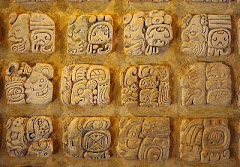
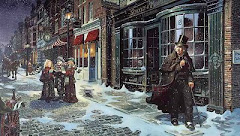


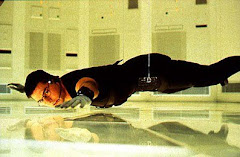
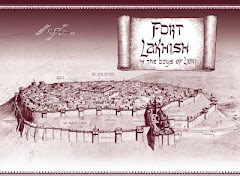



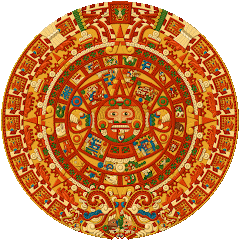
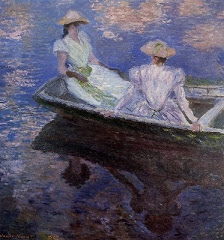
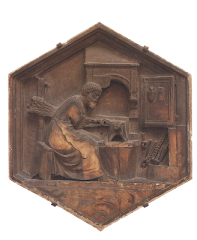

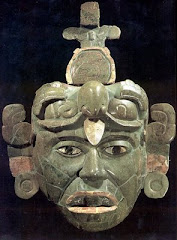



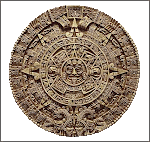

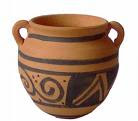
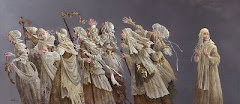



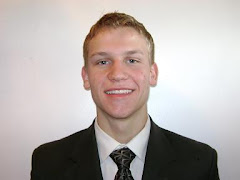
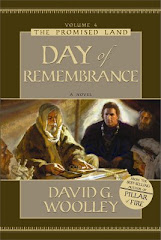


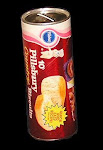
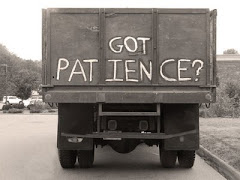
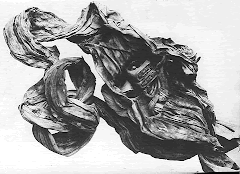
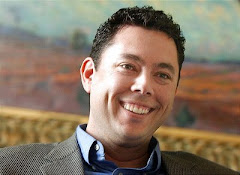

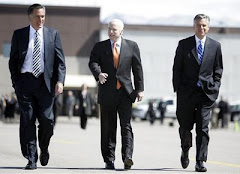

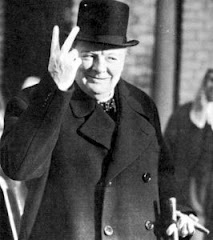
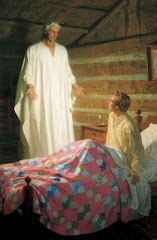
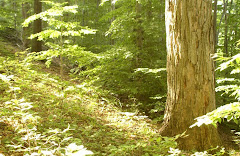

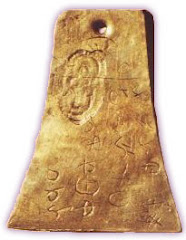


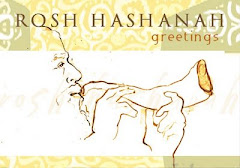

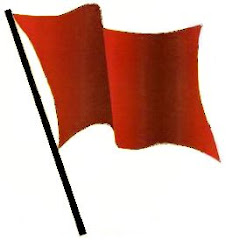
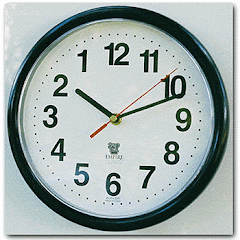

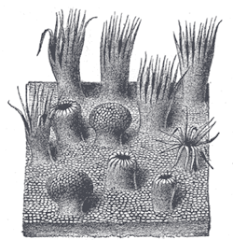
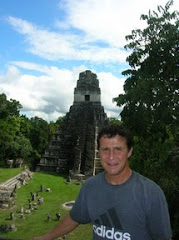


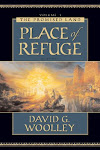
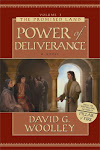

No comments:
Post a Comment